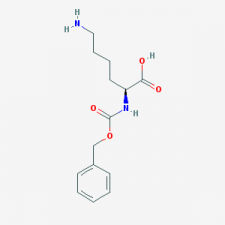We often forget how important the chemical industry is to our well-being, safety and everyday life. The stigma surrounding the problem of plastic waste in the environment often masks the industry's progress in becoming a more sustainable producer of key products.
We often forget how important the chemical industry is to our well-being, safety and everyday life. The stigma surrounding the problem of plastic waste in the environment often masks the industry's progress in becoming a more sustainable producer of key products.
In recent months, in the face of the global health crisis, the importance and responsiveness of the industry have never been so clear. The world has been affected by coronavirus, and the chemical industry has stepped in with incredible speed and agility to help struggling health authorities get the materials they need to fight the virus, protect our people on the front lines and save lives.
Life critical materials from chemical suppliers are required to be used in the production of antibacterial wipes, hand sanitizers, disinfectants, surfactants for soap and personal protective equipment (PPE), such as masks, protective clothing, and masks. By supporting a strong supply of such products, the chemical industry is helping to control the spread of the virus.
As mass production shifts to isopropanol (IPA) and ethanol, which are used to produce hand sanitizers, many chemical suppliers have taken action to directly meet the huge demand for final hand sanitizer products.
In just 10 days, Ineos has built two new hand sanitizer factories in the UK and Germany and is now distributing the products free of charge to health authorities. Arkansas and Pennsylvania have built two more in less than 10 days. Ineos's plants in Grangemouth, Scotland, Moers and Herne in Germany, and lavera in southern France have also been fully producing IPA and ethanol to support the new plant.
Dow Chemical has announced four new fungicide production bases around the world, including the existing plant in Germany, which is expected to produce more than 200 tons. Similarly, the Department of health will use the fungicide free of charge. Dow has also designed simple, lightweight masks and is producing 100000 of them to donate to hospitals in Michigan.
There are many examples that show that our industry, like humans, has come together to support us in the fight against covid-19.
The industry has played an important role in this crisis, in crisis prevention and in recovery, and will continue to be so. ExxonMobil, oleon, mol, shell, cronergy, Huntsman, lyondellbasel, BASF, Arkema, persorp, indorama, PTT global chemical, SABIC, Unica, VCI and many others have made tremendous global efforts to support the fight against the virus.
The reaction of the chemical industry to the global crisis is not surprising. The industry has long been a major contributor to global GDP and a game changer in human history.
Innovation continues to evolve to improve and save lives and make key technologies possible. Chemicals help to provide low-fat and zero-fat food; make water safe; create stronger, lighter, safer new materials for electric vehicles; improve the efficiency of airplanes and increase crop yields.
In fact, almost every industry relies on chemicals in some production processes. Its focus today is on supporting growth and addressing the challenges of sustainable development.
On March 19, the U.S. Department of Homeland Security (DHS) identified the chemical industry and its workers as "critical infrastructure" - an industry vital to public health and safety, the economy and national security. The U.S. Department of Homeland Security pointed out to the chemical industry that while following CDC guidelines for staff and customer protection, "maintaining your work schedule is a special responsibility.".
As the industry continues to adjust its production capacity to cope with covid-19, it is doing so in a market environment where the price of chemicals has plummeted due to the virus.
In April, the ICIS Petrochemical index (IPEX) fell by 18% compared with March, and the world fell 37% year-on-year. The second quarter is expected to be the industry's worst financial performance, as factory closures have led to a sharp drop in demand.
In addition to cleaning and disinfecting products, polyethylene for food packaging and polypropylene for personal protective equipment are also critical in disease prevention. While these materials are critical to the covid-19, demand and prices for these materials have also plummeted due to weakness in cars, construction and consumer durables.
However, as an industry born out of innovation and vital to modern society, the chemical industry will remain strong. The impact of the coronavirus pandemic will certainly reverberate in many industries and their supply chains, providing an opportunity for learning and potentially changing the way they work in the future.

